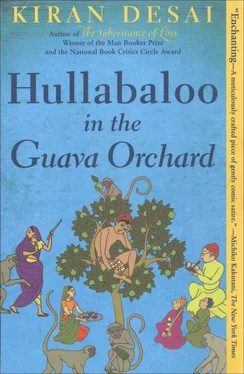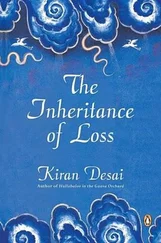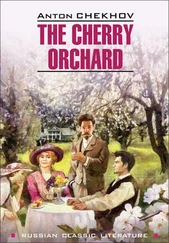He addressed his questions to a passing cow. It looked back at him, sad-eyed, on the brink, it seemed, of big, wet tears. Before he had to suffer the silence of its response, Sampath answered for it hastily: ‘Who can tell?’ Then, propping his bicycle against a pillar, he made a who-can-tell? gesture in the air and hurried into the mail room.
Inside the post office, it was dark and grimy. Inexplicably, the only window was the little one through which they sold stamps and it was still firmly closed. Paper clips, forms and files lay all over a dirty grey floor and teetering towers of ancient ledgers and letters, black with dust, were stacked up to disappear into the discoloured mottled darkness above.
Sampath stood in the doorway, with his eyes shut tight so as to give them time for this transition from sun to shade. After all, he had not slept that night and he needed to be especially careful. He opened his lids slowly, releasing his pupils to discover the gloom, the air that resembled the shadows, the murkiness of pond water. This was summer: the landscape offering up only a few shabby colours, the senses mostly overwhelmed just by dark and light in harsh opposition.
‘Oh, Sampath,’ two voices exclaimed as he entered, evidently relieved to see it was him and not the head of the post office, and then continued with a conversation that was already in full swing. In a while Sampath could make out his fellow employees sitting in the dimness, discussing, with their legs up on each other’s chairs, the very same monkey that Pinky had complained about that morning.
‘It was very embarrassing,’ said Miss Jyotsna. ‘Before I knew it, that monkey had ripped my salwar and run away with my peanut cone. Now I have to get a new salwar made and you can just imagine what problems I am having with the tailor. I told him: “Either you do not know how to use a measuring tape or else overnight I have shrunk to half my size. How can I go walking around in a big tent? What looks I will get!” He said: “You will get looks, Aunty, because the salwar kameez suits you so well.” “Don’t call me Aunty,” I told him. “Do you think I’m so old you can call me Aunty?” And look at what a mess he made with my petticoat …’ She displayed from beneath her sari the ruffled flounce that had been so shoddily sewn.
Sampath was transfixed. Miss Jyotsna kicked her feet up in the air. (What red toenails! Jewel-like, beetle-like, beautiful red toenails!) His ears felt as if they’d been dusted with a light coating of paprika.
Mr Gupta, sharing none of Sampath’s capacity for quiet observation, seized this chance for active involvement. ‘Oh no!’ He waggled his finger at her. ‘Oh no. You should not wear that shade of green at any cost. Look at how it is clashing with your complexion.’
‘Arre, Mr Gupta, what are you saying?’ Miss Jyotsna asked with mock horror that made him laugh. (The teeth he displayed were shiny white, the kind of white that in a dusty and yellow country can be found only in certain protected places such as a mouth.)
‘Don’t you ever look in the mirror?’ he teased. ‘Look and you’ll see that I am right. As always.’ He winked.
‘Will you be my fashion consultant for the wedding?’ She laughed as well. ‘Clearly you know much more than me. Doesn’t he, Sampath?’
Flirtatiously, she poked Mr Gupta with a ruler so he giggled even more. ‘What do you say? Will you tell me what to wear for the wedding?’
The wedding of the daughter of the head of the post office was to be held at the Badshah Gardens, adjoining his house, at the beginning of the wedding season. At that very moment they should have been engrossed in making arrangements with bands and kebab and rickshaw men, and doing the hundreds of other important tasks that must be undertaken at an occasion like this. For, of course, when it comes to a wedding, all official work should stop and the staff of any office whose boss’s family is having a wedding must assist in making the appropriate arrangements. This is customary office protocol. They had all been given their own appointed tasks to carry out.
When this boss — the head of the postal and telegraphic services of Shahkot — arrived, they jumped to their feet in alarm.
‘Good morning, sir.’ Miss Jyotsna quickly smoothed down her sari.
‘You will kindly begin the day’s work,’ said Mr D. P. S. ‘Keep the post office closed. Make preparations for the flower garlands. Contact the sweetmeat vendor and the biryani cooks. Get the men to put up the tent. Make arrangements for chairs. You will kindly make reservations at the railway station. The receipts are to be placed on my table. You will kindly arrange it all.’
You would think he had learned his first words, and then all the words that followed, from some instruction booklet.
‘You will kindly pull up your socks and begin,’ he snapped.
Sampath’s thoughts, all petticoats, toenails and monkeys, teetered. A wave of sleepiness overtook him. But, suddenly remembering the advice he had received earlier in the day, mimicking his father’s tone of voice, he chirped ‘Yes, sir. I will see to it right now, sir.’ But once he began, the latter half of his sentence — the ‘right now, sir’ — amazed and shocked by the preceding words, grew shaky and trailed up thinly into the high ceiling of the room, where the fan revolved with an uneven flutter like an irregular heartbeat, cobwebs having been caught in the blades. They all turned to stare at him in surprise. Never had they heard him attempt such a sentence. It was most uncharacteristic. Realizing himself how odd he had sounded, his face burning, Sampath turned and scuttled off to his desk in the dark depths at the back of the post office.
‘I am keeping my eye on you,’ said his boss after him. ‘Kindly no misbehaving.’
For a while, Sampath attempted half-heartedly to add together the costs of the wedding in an accounts ledger. Balanced on top of an old telephone directory to save himself from falling through the broken seat of his chair, he began to fill the file with numbers from the bills and receipts. But there were so many receipts and so many bills, and all so like each other, he became confused and had to start over again, and again, stacking them together and separating them, filing them backwards, mislaying them. He tried to follow the rows of numbers all the way to the bottom square marked ‘Total’, but no matter how hard he tried, how much he attempted to hone his attention to a single needle-sharp point, a pin upon which to spear number after number, his mind grew dizzier and dizzier, and he was forced to begin again until, afternoon rising in its giant push and swell, yawns blooming like buffers between him and the dusty pages, he turned his attention instead to the day’s mail.
Mr D. P. S. had disappeared on an errand to the jewellers. Miss Jyotsna and Mr Gupta were teasing one another again. Sampath examined the postcards and letters that had just been brought in on the bus from Delhi for him to sort out into the order in which they were to be delivered. He turned them over, smelled them, looked at the stamps, studied the names, the strange-feathered words: Bombalapetty, Pudukkottai, Aurangabad, Tonk, Coimbatore, Koovappally, Piploo, Thimpu, Kampala, Cairo, Albuquerque. He held them up against the light, the envelopes filled with promise, with the possibility of different worlds. He steamed them open over mugs of tea, or just prised them open, the humidity in the air having rendered the gum almost entirely ineffectual, and lazily, through the rest of the day, he perused their contents. Since he had started work in the post office, he had spent much of his time in this fashion. He had read of family feuds and love affairs, of marriages being arranged, of babies being born, of people dying and of ghosts returning, of farewells and home-comings. He had read of natural disasters, floods and earthquakes, of small trivial matters like the lack of shampoo. Of big cities and of villages much smaller than Shahkot. In some countries people took a bath only once a week and the women wore short dresses even when they were old. He picked up all sorts of interesting information. Once in a while, there were postcards sent from foreign countries to addresses in the posh localities of Shahkot, and Sampath sat for hours mulling over, say, a picture of a palm tree by a sea as blue as if it had been dyed with paint, or of a village belle from Switzerland in a tight-laced frock and two fat yellow plaits that resembled something good to eat. Switzerland was a cold country where there was not a speck of dirt. There in the afternoon heat of Shahkot, Sampath would imagine the cold and the clean so vividly, every hair on him would stand on end.
Читать дальше












